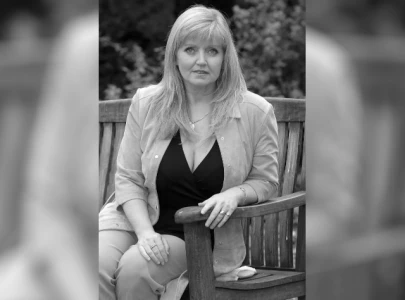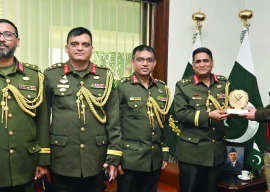
That should assure pride of place for women in Indian society, especially now the country is growing both in global influence and affluence.
In reality, India's women are discriminated against, abused and even killed on a scale unparalleled in the top 19 economies of the world, according to a new poll by the Thomson Reuters Foundation.
The survey, polling 370 gender specialists, found Canada to be the best place to be a woman amongst G20 nations, excluding the European Union economic grouping. Saudi Arabia was the second worst, after India.
"It's a miracle a woman survives in India. Even before she is born, she is at risk of being aborted due to our obsession for sons," said Shemeer Padinzjharedil, who runs Maps4aid.com, a website which maps and documents crimes against women.
"As a child, she faces abuse, rape and early marriage and even when she marries, she is killed for dowry. If she survives all of this, as a widow she is discriminated against and given no rights over inheritance or property."
Many of the crimes against women are in India's heavily populated northern plains, where, in parts, there is a deep-rooted mindset that women are inferior and must be restricted to being homemakers and child bearers.
In addition, age-old customs such as payment of hefty dowries at the time of marriage and beliefs linking a female's sexual behavior to family honour have made girls seem a burden.
The poll results - based on parameters such as quality of health services, threat of physical and sexual violence, level of political voice, and access to property and land rights - jars with the modern-day image of India.
India had a female prime minister, or head of government, as long ago as 1966. Well-dressed women in Western attire driving scooters or cars to work is now an everyday sight in cities. Women doctors, lawyers, police officers and bureaucrats are common.
Millions Aborted
But scratch under the surface and the threats in India are manifold - from female foeticide, child marriage, dowry and honour killings to discrimination in health and education and crimes such as rape, domestic violence and human trafficking.
Indeed, a girl's fight for survival begins in the womb due to an overwhelming desire for sons and fear of dowry, which has resulted in 12 million girls being aborted over the last three decades, according to a 2011 study by The Lancet.
This has led to a decline in the number of women in proportion to men in many areas, resulting in a rise in rapes, human trafficking and, in certain cases, practices such as "wife-sharing" amongst brothers.
In fact, the curse of dowry continues even after marriage. One bride was murdered every hour over dowry demands in 2010, says the National Crime Records Bureau. Some are "stove burnings" where in-laws pour kerosene, the commonly used cooking fuel of poorer homes, over women and set them alight, making it appear accidental.
"The courts are flooded with cases of gender-related crimes," said retired Supreme Court judge Markandey Katju. He said honour and dowry murders should be punished with death.
"These are not normal crimes. These are social crimes because they disrupt the entire social fabric of the community. When you commit crimes against women, it has a lasting impact."
Experts say child marriage remains among the biggest hurdles to women's development in India and has a domino effect. Almost 45 percent of Indian girls are married before they turn 18, says the International Center for Research on Women.
A child bride will drop out of school and is more likely to have complications during child birth. One in five Indian women, many child mothers, die during pregnancy or child birth, the United Nations says.
Their babies, if they survive, are more likely to be underweight and suffer stunting due to poor nourishment. Many will be lucky to survive beyond the age of five.
In the narrow, crowded alleyways of Sapara slum on the outskirts of Delhi, 15-year-old newly married Aarti has never been to school and says she was married off because her father has tuberculosis and couldn't work or afford to look after her.
"I said no, but my mother said my father was sick, so I had no choice," Aarti said, wearing the traditional bright red bangles of new Hindu brides.
"I spent my time doing domestic chores. I like to play with dolls ... but my grandmother has taken them away now. She says I don't need them anymore."
Two Indias
Indian authorities have also struggled to combat rising crimes against women, including domestic violence, molestation, trafficking and rape.
Reports of women being snatched from the streets and gang-raped in moving cars are frequent in Delhi and its neighbourhood. Newspaper reports are full of stories of trafficking and sexual exploitation.
In many cases, violence against women has a level of social acceptability. A government survey found 51 percent of Indian men and 54 percent of women justified wife beating.
India has robust gender laws, but they are hardly enforced, partly because a feudal mindset is as prevalent among bureaucrats, magistrates and the police as it is elsewhere.
Politicians are also unwilling to crack down on customary biases against women for fear of losing conservative votes.
"The inheritance law was reformed in 2005, bringing women's legal equality in agricultural land. In reality, however, less than 10 percent women own some kind of land," said Govind Kelkar from land rights group, Landesa India.
"This is more stark as 84 percent of rural women are engaged in agricultural production. There is policy silence on the implementation of laws for women's rights."
Some gains are being made, primarily by instituting gender-sensitive laws and social schemes as well as boosting the number of girls in primary schools, the workforce and village politics, experts say.
More than two decades of economic liberalisation has also helped empower women, and as India has opened up, Western ideas of equality have permeated towns and cities.
The country's top political positions are held by women, including the head of the main ruling party, Sonia Gandhi, and the country's outgoing president, Pratibha Patil.
"There are two Indias: one where we can see more equality and prosperity for women, but another where the vast majority of women are living with no choice, voice or rights," said Sushma Kapoor, South Asia deputy director for U.N. Women.
Gender experts say the challenges are immense, given India's vast population of 1.2 billion, its diversity, and geographical spread. But they add they are not insurmountable.
Tiny pockets show positive change by giving women opportunities such as access to higher education, vocational training and finance - tools that should transform the perception of women as burdens to assets.
A new Oprah Winfrey-style television talk show called "Satyamev Jayate" (truth alone prevails), hosted by popular Bollywood actor Aamir Khan, has in recent weeks focused on issues such as foeticide, and dowry and honour killings.
COMMENTS (18)
Comments are moderated and generally will be posted if they are on-topic and not abusive.
For more information, please see our Comments FAQ



1736942026-0/fizza-(33)1736942026-0-165x106.webp)


1736939933-0/sidra--(8)1736939933-0-270x192.webp)

1736930217-0/sidra--(6)1736930217-0-270x192.webp)
1736925754-0/sidra--(4)1736925754-0-270x192.webp)

1732012115-0/Untitled-design-(14)1732012115-0-270x192.webp)
1736844405-0/Express-Tribune-(2)1736844405-0-270x192.webp)










It is the home schooling that is primarily responsible for this mindset. Parents give preference to boys over girls. Girls are systematically taught at homes by parents and grandparents that they are inferior to boys. It is prevalent among all religions in India be they Hindus, Christians or Muslims. Although female deity Durga is worshiped as Goddess of strength, what is practiced in many homes is totally different. Children learn from what they see being practiced by the elders at home and not what they are preached. It is the man who is always the breadwinner for the family and not the woman. Parents see their male child as their social security or pension income when they grow old. They think that their sons shall take care of them in their old age, but in many cases it is the girls who are taking care of their old parents and the boys have just neglected them. If India wants to change, the change should start from within the homes.
This report on the tragic fate of many women in India must be a solace for those in Pakistan and Afghanistan, who now know that they aren't worse off.
It is sad story of some of Indian societies and this story truly shows the underbelly of our some of decadent societies. This system of killing girl in their womb is mainly followed in North-India and in particular in the so called martial castes of North India. This should not be generalised as south, east and even north-east India is far ahead in the human index related to women emancipation and their position in society vis-a-vis men. In north India this the custom of giving girl with dowry breaks the back of poor family, and custom of giving unwanted status and custom of presenting themselves as slave to the in-laws of daughter, custom accepting anything right or wrongs, custom of feet touching, this all makes a humilating experience. To avoid this, the people started getting rid of girls first after immediate birth of girl and now as soon as sex is determines. This cruel custom will go away if and only if we stop taking dowry and treating the family of girl as below in social status.
We Indians should not try to defend ourselves on this matter. We should fix this issue once and for all. Things are improving but this is the time to keep improving rather than defending
@Equal rights: You guys cannot breath without dragging religion into everything, aren't you? The lives of urban area women are better thanks to education. But you won't be able to see that since you are too busy bombing girls school and forcing them into a black hole. The funny part is, of all the people, you guys talk about right to inheritance, divorce, female infantry, female rights etc
@Pungi: before making any such comment you have to read indian media.....go read tehalka, indiatoday, frontline, the hindu and numerous other such media outlets.....SATYAMEV JAYATE, CRIME PATROL and other such efforts in electronic media have been trying to make the differnce......
if you feel those idiotic discussions by teen indians and pakistanis over comment section in toi are the whole of indian media, then i can only laugh at your ignorance......
@Equal rights: this article was such that quite a great many indians would find it difficult to explain the things mentioned above...however you just provided a comic relief...and also the chance to deflect the topic from the main issue.......i strongly feel that you are an indian..
@vigilant... Exactly... even no comments from the pro-India Pakistanis... and I can also bet this survey wont get published in any of Indian newspaper...that's how they portray India, only positiveness... sheer contrast to Pakistani media..!
@Equal rights: " ... Satee Pratha, no right to inheritance and divorce, female infantry and Zoophilia. .... Such incidents are not common in Urban areas where ppl have shunned Hinduism ... "
Shunned Hinduism ? Are you serious ? Whatever good you see in India IS because more and more people are imbibing the real Rig Vedic Sanatan Dharma. And there is a lot more to come.
@Equal rights: Satee Pratha, no right to inheritance and divorce, female infantry and Zoophilia. All this evil has religious backing in India so these things are prevalent wherever Hinduism is prevalent. Snap out dude...... Its 2012 India. Not that these things don't exist, they are minimal. Moreover, please give a reference where the religious backing has been mentioned....
The image doesnot include the most important issues of women in Hindu society...Satee Pratha, no right to inheritance and divorce, female infantry and Zoophilia. All this evil has religious backing in India so these things are prevalent wherever Hinduism is prevalent. Such incidents are not common in Urban areas where ppl have shunned Hinduism
There are two Indias: one where we can see more equality and prosperity for women, but another where the vast majority of women are living with no choice, voice or rights,” said Sushma Kapoor, Agreed. But lot of work is being done to make a change. I wish govt of the day gives the issue more importance than trying to garner more votes.
Background: Alice Bhatti lives in a Christian slum and is a Christian nurse in a Muslim hospital in Karachi, Pakistan. Mohammed Hanif “In our Lady of Alice Bhatti’ doubleday Canada $22.95,
Hanif writes.. ”there was not a single day-not a single day-when she didn’t see a women shot or hacked, strangled or suffocated, poisoned or burnt, hanged or burnt alive. Suspicious husband, brother protecting his honor, father protecting his honor, son protecting his honor, jilted lover avenging his honor, feuding farmer selling their water disputes, moneylenders collecting their interest: most of lives’ arguments, it seemed, got settled by doing various things to a women’s body” Quite I am still thinking!
NEW DEHLI!!!!!!!!!!! Please correct yourself......
Cannot find Indian Comments...... i am sure if above article was about Pakistani women......there would be flood of negative comments
must say great photo highlighting the issues